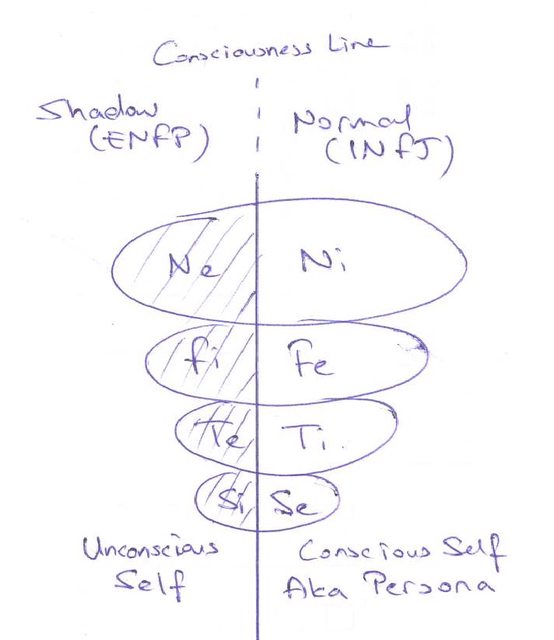yeghor
Well-known member
- Joined
- Dec 21, 2013
- Messages
- 4,276
I was naturally inclined to things that amused my grandfather when I was small. Singing and dancing, I even apparently followed him around when I was two, and when he said dammit because he hammered his thumb in the tool shed, I screamed dammit too. He taught me to read, and I fortunately responded to his attempts to teach me about history, geography and politics. His sister's husband was a local politician, so I naturally absorbed all of it quite happily, and it shows in my interests as an adult. My grandfather had a similar fondness for my ESFP mother. He favored her over my aunt and uncle, apparently. Just like with her he showered me with gifts and nice dresses, but as I grew, he was dismayed I didn't share his interest or aptitude even slightly in math. I also eventually proved silly, hard to control, and full of rebellion by middle school. He had hoped for a serious church mouse who would play piano for him and be the kind to stay at home and be cautious and sensible...but I wasn't. And eventually the only way to get his attention or praise was if protected or defended me in some way, or if I achieved something. I know he always loved me, he took me clothes shopping even when I was 25, but after puberty I felt I was a constant disappointment to him, that he thought I was smart but not using it the way he wanted. He wanted me to join the Air Force at eighteen and I said no way. But then I even went to the recruiting office but drove home crying, I just couldn't do it.
Now he's dead, and only too late did I realize I should have said thank you. A young father would still be alive for me to thank in my maturity. My grandfather died in my twenties before I had matured to the point when people realize how much they actually appreciate their parents (or grandfather in my case). So my mom reaps the benefits of having that, but since I can't give my grandfather that, it's like I still want to succeed for him. Maybe?
Weird Te like it's not my main strength, I think I have been in the grip of inferior Te maybe more than some people, and it makes me...UNPLEASANT.
I should add here that I felt constantly underestimated belittled and condescended to after about the age of fifteen or sixteen. Like he would buy me things but tell me I was good at the wrong things, it was verbal abuse.
Since nothing I did was quite good enough after that point, I just decided I would rather not have any of his money and be free of his bullshit.
Sorry to hear all that... I am trying to imagine how I might act myself when I have children in future... How much directing/guiding is too much or too little?
Perhaps it's best to draw a wide boundary with red lines for our children and let them make mistakes and learn for themselves within...and help them recover if they are hurt in the process rather than berating/blaming them for getting hurt..they can't learn (for themselves) witout taking risks...
In any case I guess they were doing their best but did not know any better...time to live for ourselves...
Sent via Tapatalk


